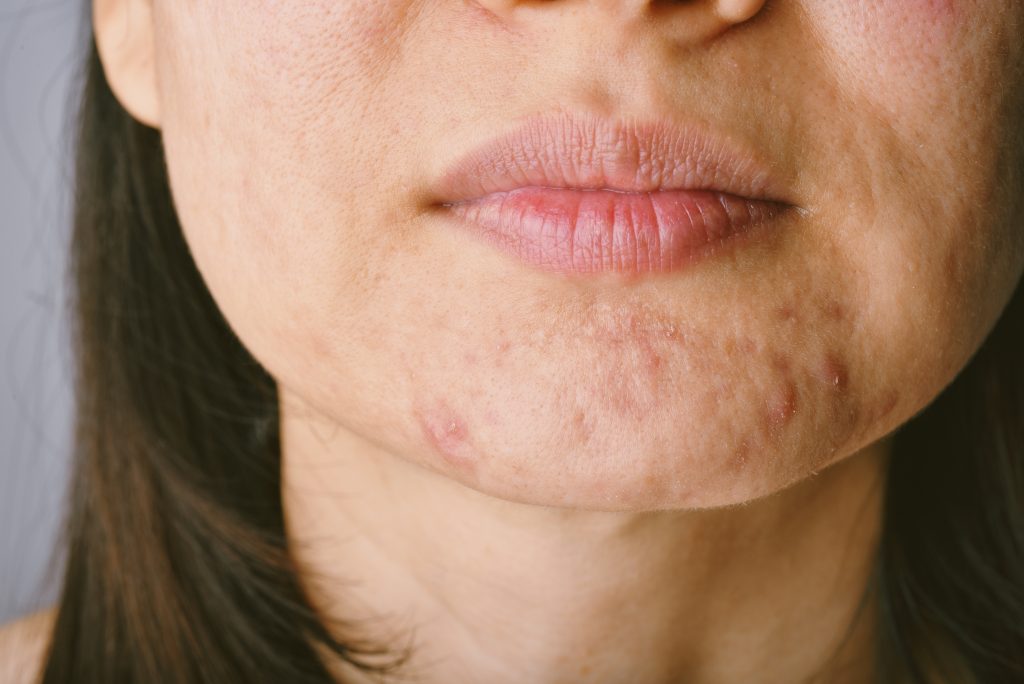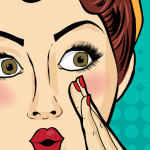
Menopause is a natural, gradual process that typically occurs between the ages of 45 and 55. It marks the end of a woman’s reproductive years and is caused by a decline in the production of the hormones estrogen and progesterone.
The most common symptom of menopause is hot flashes, but many women also experience other symptoms, such as mood swings, insomnia, and weight gain. In addition, some women may also experience an increase in acne during menopause.
Acne is a common skin condition that affects millions of people around the world. Menopause can trigger or worsen acne due to the changes in hormone levels that occur during this time. However, there are several ways to manage and reduce acne during menopause. Keep reading to learn more!
The Link Between Menopause And Acne
During menopause, there is a decline in the production of the hormone estrogen. At the same time, there is an increase in the production of the hormone androgen. Androgen is a male sex hormone that is present in both men and women. In women, androgen is responsible for the development of secondary sexual characteristics, such as increased body hair and a deeper voice. Androgen levels typically decline after menopause, but some women may experience a temporary increase during this time. This increase in androgen levels can trigger or worsen acne.
Managing Acne During Menopause
There are several things you can do to manage acne during menopause. First, it’s important to take extra care of your skin. Wash your face twice a day with a gentle cleanser and use a light, oil-free moisturizer. Avoid scrubbing your skin too harshly, as this can make acne worse. In addition, be sure to wear sunscreen every day, as menopause can make your skin more sensitive to the sun. Another thing you can do to manage acne during menopause is to avoid triggers. Common trigger foods include processed foods, dairy, and sugar. If you’re not sure what your trigger foods are, keep a food diary to help you identify them. Finally, it’s important to manage your stress levels. Stress can trigger acne breakouts, so it’s important to find ways to relax and unwind. Exercise, yoga, and meditation are all great ways to reduce stress.
Treating Acne During Menopause
There are several things you can do to treat acne during menopause. First, it’s important to identify your trigger foods and avoid them. As mentioned above, common trigger foods include processed foods, dairy, and sugar. If you’re not sure what your trigger foods are, keep a food diary to help you identify them. Second, you can try using over-the-counter acne treatments. These treatments can help to reduce inflammation and kill bacteria. However, they may not be effective for everyone. If over-the-counter treatments don’t work, you may need to see a dermatologist for prescription medication. Prescription medication can be very effective, but it’s important to follow your dermatologist’s instructions carefully.
Diet And Lifestyle Changes For Menopausal Acne
There are several diet and lifestyle changes you can make to help reduce acne during menopause. First, it’s important to eat a healthy diet. Include plenty of fruits, vegetables, and whole grains in your diet. Avoid processed foods, dairy, and sugar. Second, you should exercise regularly. Exe
rcise can help to reduce stress and improve your overall health. Third, you should avoid smoking and drinking alcohol. Smoking and drinking can make acne worse. Finally, you should make sure you get enough sleep. Sleep helps to reduce stress and promotes healing.
When To Seek Help For Menopausal Acne
If you’re struggling to manage your acne, it may be time to seek help from a dermatologist. A dermatologist can prescribe medication that can help to clear up your skin. In addition, a dermatologist can help you to identify your trigger foods and make lifestyle changes that can help to reduce your acne.
If you need to get in contact with an OBGYN or want to learn more about healthy living for women, visit our contact page.
